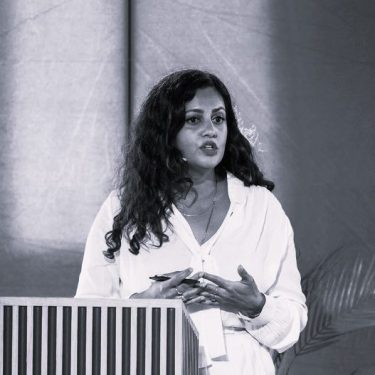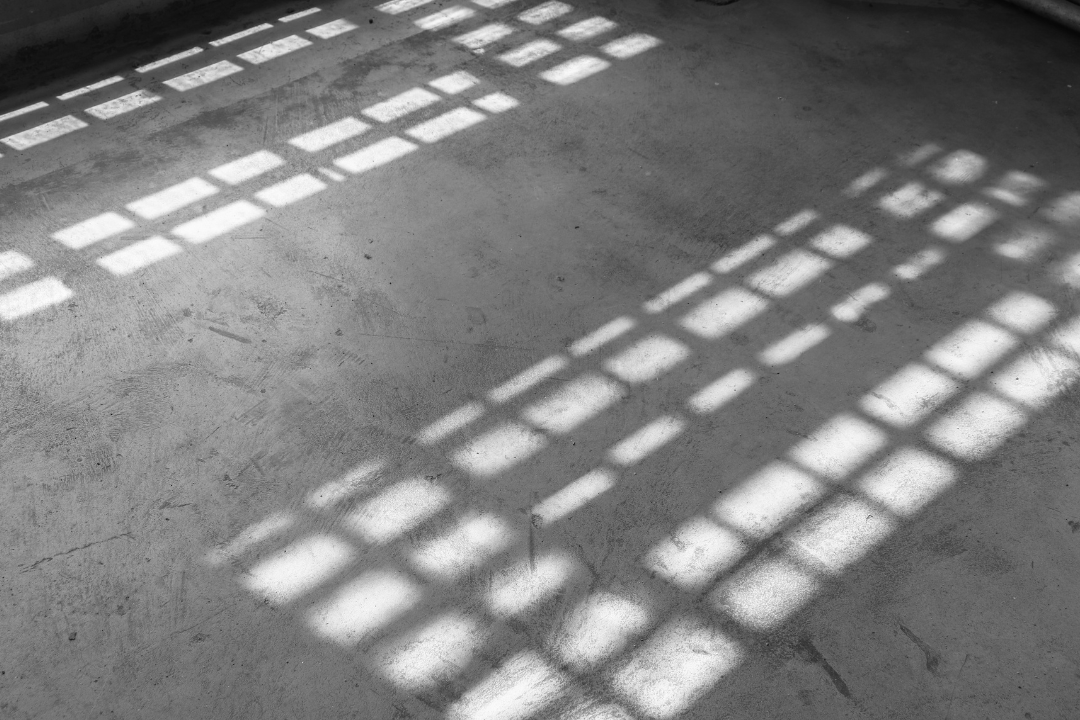At the Nexus of Reproductive Crimes and Torture
Insights from the Alaa M. Trial on Gendered and Age-Specific Abuses in Syrian Detention Facilities
This post examines the case of Alaa M. to shed light on an often-forgotten dimension of gender-based crimes – reproductive violence. In an important new precedent, the Higher Regional Court of Frankfurt am Main delineated sexual from reproductive violence in its judgment, opening a pathway for a more gender-competent understanding of the crimes committed in Syria.
On 16 June 2025, after an 188-day trial, the 5th Criminal Senate (State Protection Senate) of the Higher Regional Court of Frankfurt am Main sentenced Alaa M. to life imprisonment.
The 40-year-old Syrian national worked as a civilian doctor in military hospital 601 and in branch 261 of the Syrian military intelligence service in Homs, where persons of all ages and gender identities were arbitrarily detained, tortured, and subjected to various sexual and gender-based crimes. In this context, he was found guilty of, among others, crimes against humanity of killing and torture in conjunction with attempted enforced sterilization and the war crimes of murder and torture.
The Alaa M. Trial brings with it many “firsts”: the first universal jurisdiction case in Germany that concludes after Bashar al-Assad has been ousted; the first case worldwide that shines a light on the involvement of medical professionals in the commission of crimes against humanity and war crimes in Syria; and the first time a child has been recognized as a victim of international crimes committed in government-run detention facilities in Syria in any universal jurisdiction trial in Germany. Substantively, it is also the first case that successfully prosecuted the attempt to commit the crime against humanity of enforced sterilization (in German “Beraubung der Fortpflanzungsfähigkeit” – “deprivation of the ability to reproduce”) under Section 7 (1) (6) German Code of Crimes against International Law (CCAIL) in conjunction with the commission of the crime against humanity of torture. As the formation of transitional justice in Syria begins to take shape, the case is a stark reminder of the centrality of gender-based crimes committed against persons of all gender identities and ages in government-run detention facilities and of the need for justice to be delivered for these crimes.
What Are the Facts of the Case?
The Court found that Alaa M., in his capacity as a doctor in Homs from 2011-2012, inflicted considerable physical suffering on captured “patients” who were attributed to the Syrian opposition and deliberately killed two. The findings illustrate the myriad ways in which Alaa M. abused the authority of his medical position and violently treated detainees.
In one case, Alaa M. carried out part of a surgical procedure without anesthesia, straightening the femur fracture of one detained patient. Moreover, he mistreated two detained patients, one of whom suffered from epilepsy and had seizures. Instead of providing this patient with medical care, the defendant administered a lethal tablet. As intended by the defendant, the patient died as a result. Alaa M. killed another detainee who resisted him by means of a lethal injection in front of other detainees to demonstrate his power and in order to suppress rebellion. The judgment further details how Alaa M. physically abused detainees, including with the support of other medical staff.
Importantly, in two cases, Alaa M. set the genital areas of victims on fire with disinfectant alcohol, including one boy between 14 and 15 years old. He also hit the heads of detained patients with a urine catheter and with his fist, and squeezed the genitals of one adult man.
Legal Characterization
The judgment, which the defendant has appealed, positively contributes to jurisprudential developments in international criminal law, including on gender-based crimes and crimes against and affecting children.
Notably, the case disentangled the often conflated concepts of sexual violence and reproductive violence, exposing the distinct conduct and harms that constitute reproductive violence. Historically, gendered violence has often been entirely subsumed by the crimes of rape and sexual violence, and more often than not, just focused on the experiences of cis-women, undermining a complete, nuanced, and intersectional understanding of the nature of gender-based crimes.
In the present case, as detailed above, the conviction of the crime against humanity of torture in conjunction with the attempted enforced sterilization is based on two cases in which Alaa M. targeted the genital areas of victims. These crimes violate the victims’ reproductive, rather than sexual, autonomy. While discussions about enforced sterilization and other acts of reproductive violence have largely been limited to violations committed against cis-gender adult women, the victims in the present case were a cis-gender adult man and a boy child. With that, the Alaa M. case demonstrates that reproductive violence concerns persons of all ages and gender identities. This precedent is not limited to the specific accountability of Alaa M., but also demonstrates why reproductive violence must be introduced as a distinct category of analysis within the design of the transition justice process in Syria so that justice can be delivered for the totality of harms suffered by victims, including the different forms of reproductive harm and their consequences. The full judgment has not yet been published (it is expected to be published by April 2026), and it remains to be seen how the judges approached the details of Alaa M.’s conduct and the legal elements.
The Rome Statute of the International Criminal Court (ICC) stipulates that enforced sterilization may amount to a crime against humanity or a war crime. The Elements of Crimes specify the crime’s two substantive elements, namely i) the deprivation of biological reproductive capacity (excluding birth control measures which have a non-permanent effect in practice); and ii) conduct that was not justified by the medical or hospital treatment of the person or persons concerned nor carried out with their genuine consent (ICC Elements of Crimes, Art. 7(1)(g)-5, Art. 8(2)(b)(xxii)-5)) . The Rome Statute explicitly recognizes one other act of reproductive violence, namely, forced pregnancy. Other similar acts have the potential to be brought as charges under one of the two “residual” crimes – other inhumane acts and “any other form of sexual violence of comparable gravity.” The Hague Principles on Sexual Violence, for example, unpack how a broader range of gender-based acts, including reproductive violence, can be brought as charges under the residual category of “any other form of sexual violence of comparable gravity”. This is also reflected in the ICC Office of the Prosecutor’s recently updated Policy on Gender-Based Crimes, which recognized a range of acts of reproductive violence that may fall under the ambit of the Rome Statute, including “forced use of contraception, forced abortion, forced breastfeeding, denial of essential reproductive healthcare or physical violence aimed at reproductive organs.”
While enforced sterilization has been discussed as a form of reproductive violence in the relevant literature and considered in the domestic prosecution of international crimes in contexts such as Colombia and as violations of international human rights law, it has never been prosecuted at the ICC. In fact, it was only recently, over 20 years after the Rome Statute was drafted, that the ICC secured its first conviction for a crime of reproductive violence. With that, the Alaa M. case is a further example of how the growing case law on reproductive violence as an international crime can be observed not only before the ICC, but importantly, at the domestic level.
The Alaa M. case builds on the existing case law regarding international crimes in government-run detention facilities in Syria. Previous universal jurisdiction cases in Germany, such as the ones against Anwar R. and Eyad A., have found the Syrian government’s detention system to be an instrument of violent repression from March 2011 onwards. Alongside severe deprivation of liberty and murder, physical and psychological torture has been at the center of these cases – at times at the expense of gender-based crimes such as sexual assault and rape as crimes against humanity. A similar prosecutorial strategy can be inferred from the initial indictment against Alaa M. and, more recently, Fahad A. What sets the initial charges against and eventual conviction of Alaa M. apart is the explicit consideration of acts of attempted enforced sterilization as a concurrent charge to torture, consequential murder, and severe bodily and mental harm (the which did not make it into the final judgment, possibly due to the German principle of legal concurrence), including against and affecting a child victim.
Finally, the Court is to be commended not only for differentiating sexual violence from reproductive violence, but also reproductive violence from torture. Past universal jurisdiction cases in Germany have shown the existing difficulties in distinguishing these crimes from one another, particularly when it comes to sexual violence and torture.
Looking ahead, other charges could be explored to appropriately legally characterize the full range of acts committed in Syrian detention facilities since March 2011. For example, the 2024 ICC-OTP Policy on Slavery Crimes clarifies that evidence, or indicia that prove the exercise of any or all powers attaching to the rights of ownership over a persons, are varied, non-exhaustive but include situations of detention (para. 34). The IIIM-Syria detention report might be a starting point, notably referring to a statement of detainees in the al-Balouna prison in Homs who describe the experience of detention as being “treated like a slave” (para. 92).
Concurrently, the targeting of real or perceived political activists who opposed the Assad regime with arbitrary arrest, detention, torture, as well as sexual, reproductive, and other gender-based crimes is to be investigated and prosecuted as persecution on political, gender, and age grounds as a crime against humanity. Concluded and ongoing universal jurisdiction trials in Germany against ISIL members for their involvement in crimes against the Yazidis provide a useful blueprint for the crime of persecution, including on intersecting grounds. Cumulative charging and prosecution allow for a comprehensive examination of the crime of persecution and impact evidence in the interest of non-discriminatory and intersectional justice.
Conclusion
The Alaa M. judgment presents an important advancement in the recognition of reproductive violence, including its gender and age dimensions, in the context of government-run detention facilities in Syria. It also sheds light on the critical role of medical professionals and their involvement in a range of international crimes. More broadly, these precedents are important as the recognition of, and legal accountability for, reproductive crimes remain nascent.
As further cases move forward for justice for crimes committed in Syria, prosecutors should seek to include additional charges that can expose and deliver justice for the full complement of crimes committed.

Susann Aboueldahab is a PhD Candidate and Research Assistant at the Department for Foreign and International Criminal Law and at the Study Center for Latin American Criminal and Criminal Procedural Law (CEDPAL) at the Georg-August-Universität Göttingen, Germany.

Alexandra Lily Kather is the co-founder of the emergent justice collective, advises accountability actors on the strategic investigation and prosecution of intersectional dimensions of core international crimes and works to strengthen decolonial feminist, intersectional as well as restorative approaches in international justice.

Akila Radhakrishnan is an independent human rights lawyer and gender justice expert. She is the former President of the Global Justice Center and is currently a legal advisor for the End Gender Apartheid Campaign.
